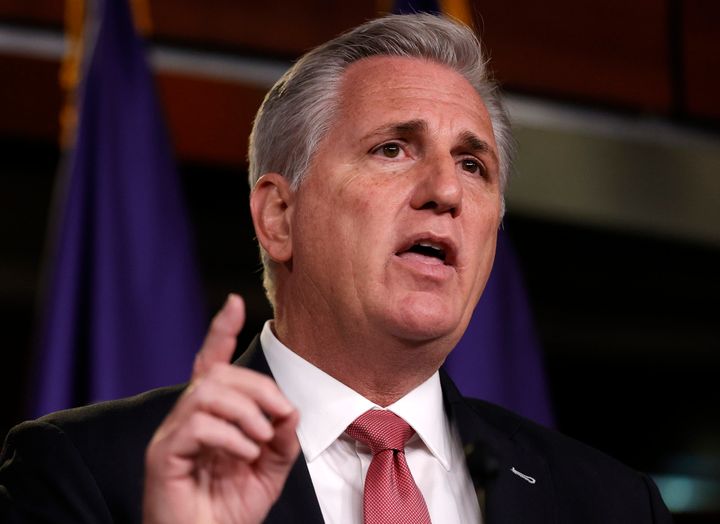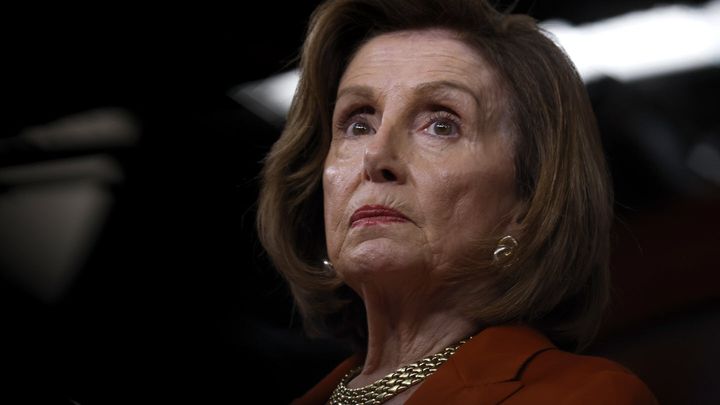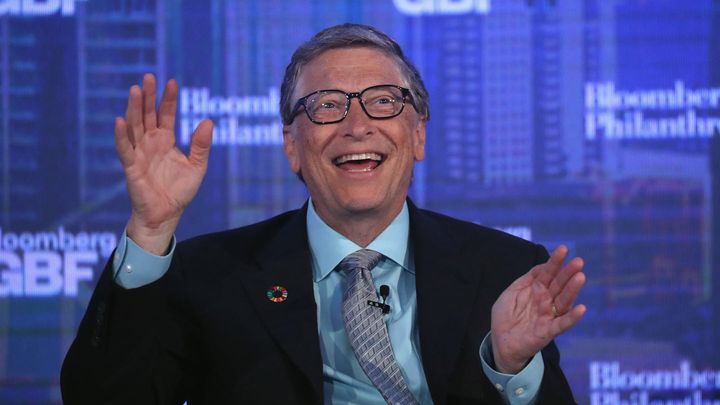Dozens of companies announced changes to their PAC contribution policies this month, after 147 Republican members of Congress objected to the Electoral College vote and pro-Trump protestors rioted at the Capitol Building. About two dozen companies vowed to halt donations to the objectors, many for an indefinite amount of time, a few in perpetuity.
Most of the PAC-pausing companies are dues-paying members of trade associations that have their own PACs and make political donations to both sides of the aisle. Corporate trade associations are some of the most powerful players in Washington, with lobbying reaching record highs in 2020 amid the pandemic. One of the largest business groups, the U.S. Chamber of Commerce, spent almost $82 million last year, according to the latest figures from the Center for Responsive Politics (CRP). However, information about industry groups and their member companies is only sporadically disclosed, with many companies burying their lobbying affiliations in voluntary political transparency reports, or not publishing them at all.
Some prominent trade associations, such as the U.S. Chamber, the American Bankers Association, and PhRMA, joined in announcing that they would be freezing their PACs after the violence at the Capitol Building, though they did not pledge that Republican objectors in Congress would be permanently cut off from donations. Among the scores of less well-known trade associations, many had not posted public statements online about plans for their PAC donations in the wake of the January 6 riots.
Companies like AT&T and Comcast that cut off their PAC donations to election objectors can be susceptible to consumer pressure and have a profit motive to not be seen as aligned with unpopular political movements, but their trade groups operate in relative obscurity outside of D.C., giving them a convenient buffer for continuing with business as usual.
Sludge reviewed trade associations affiliated with companies that have paused their PAC giving to the 147 Republican election objectors and asked over two dozen trade groups if they would follow their members’ stances by cutting off donations to the members of Congress who objected to the Electoral College vote.
Of the 29 trade associations contacted this week, three groups responded with new information about their PAC contribution plans:
- NCTA — The Internet & Television Association told Sludge that it will take the violence at the Capitol Building into account in future donations, though it did not say it would adopt the policy of its major member company Comcast in cutting off PAC donations indefinitely to the 147 objectors.
- The Futures Industry Association (FIA) said it will cut off donations indefinitely to the 147 election objectors.
- The Wireless Infrastructure Association (WIA) said it is reviewing its giving.
In addition, three groups responded with clarifications of policies that had previously been announced: the American Bankers Association (ABA) confirmed that its PAC is paused, pending a review; the Computer and Communications Industry Association (CCIA) says it will take the election objectors’ actions earlier this month into account; and the American Chemistry Council (ACC) also said it would take the “reprehensible acts of Jan. 6” into account in future donations.
Cable Industry Promises Consequences
NCTA, the cable industry lobbying group, made close to $1.77 million in PAC donations in the 2020 election cycle while spending nearly $15.5 million on federal lobbying, according to data from CRP, making it the tenth-highest spender on lobbying last year.
Just behind NCTA in lobbying spending is Comcast, a major member company of the cable trade association. They have close ties: Comcast president and CEO Dave Watson serves as chair of the NCTA board, and current NCTA president and CEO Michael Powell replaced Kyle McSlarrow, who moved in 2011 to become director of Comcast’s government affairs department. In the 2020 election cycle, executives and employees of Comcast contributed over $477,000 to the NCTA PAC, according to FEC records, making up just under one-fifth of the PAC’s $2.52 million in funding received.
Comcast’s PAC was among the top donor groups to the 147 Republican election objectors in 2019-2020, with $766,000 given. On Monday, Jan. 11, the cable giant moved quickly to cut off PAC donations to the objectors indefinitely. However, NCTA’s PAC has been a significant donor to the objectors, many of whom share the lobby group’s opposition to net neutrality policies. In the 2019-2020 cycle, 29 of the election objectors received approximately $200,000 from NCTA’s PAC, according to a Sludge review of FEC records. NCTA’s giving last cycle includes maximum donations to the joint fundraising committees and campaign committees of Rep. Steve Scalise of Louisiana and House Minority Leader Kevin McCarthy of California, as well as maximum donations to the campaigns of seven more Republican objectors.
NCTA head Michael Powell tweeted during the Jan. 6 riot that it was a “deeply disturbing moment,” but the group had not posted a press release on its website or its official Twitter account addressing the Capitol Building riots or future PAC donation policies. In response to Sludge’s inquiry, NCTA’s Brian Dietz, senior vice president of strategic communications, wrote that this month’s assault on the Electoral College certification will be taken into account, describing itself in an email as “just a modest trade association,” though he did not provide more specifics on its alignment with Comcast:
“In the cold shadow of the January 6 episode, every American and every institution is left to reflect on what they honor and where they want to stand in this moment of crisis… it is time to be more discriminating with our donations. Going forward, we will support not just those who embrace our policy preferences, but those who stand up for the preservation of our democracy when it is needed. And, importantly, to refuse to support those who choose to break our democracy rather than build it, most especially by courting violence.”
A Few Industry Groups Take a Stand
The Futures Industry Association (FIA) describes itself as the leading trade association for derivatives markets. American Express discloses it’s an FIA member, and the company is cutting off PAC donations in perpetuity to objectors after sending them $76,000 last cycle. FIA member Morgan Stanley is similarly cutting off the election objectors, after having given them $172,000 last cycle, including $4,500 to objector Sen. Roger Marshall of Kansas. Other FIA members include Citigroup Global Markets, whose parent company has paused its PAC through the first quarter of this year, and Goldman Sachs, whose PAC giving is pending review. J.P. Morgan Securities is a FIA member, and JP Morgan Chase has frozen all PAC giving for six months.
In the 2020 cycle, FIA’s PAC contributed to objectors Rep. Blaine Luetkemeyer of Missouri and Rep. Glenn Thompson of Pennsylvania, part of its $32,500 in total donations to 15 candidates, according to FEC records.
While FIA’s Twitter account condemned the violence Jan. 6, its website’s press releases had not previously addressed the Electoral College objectors. The FIA’s Steven Adamske, head of communications and public affairs, wrote in response to Sludge’s inquiry, “FIA has decided to suspend any PAC giving to the 147 members. This decision was reached shortly after the January 6 riots in the Capitol.”
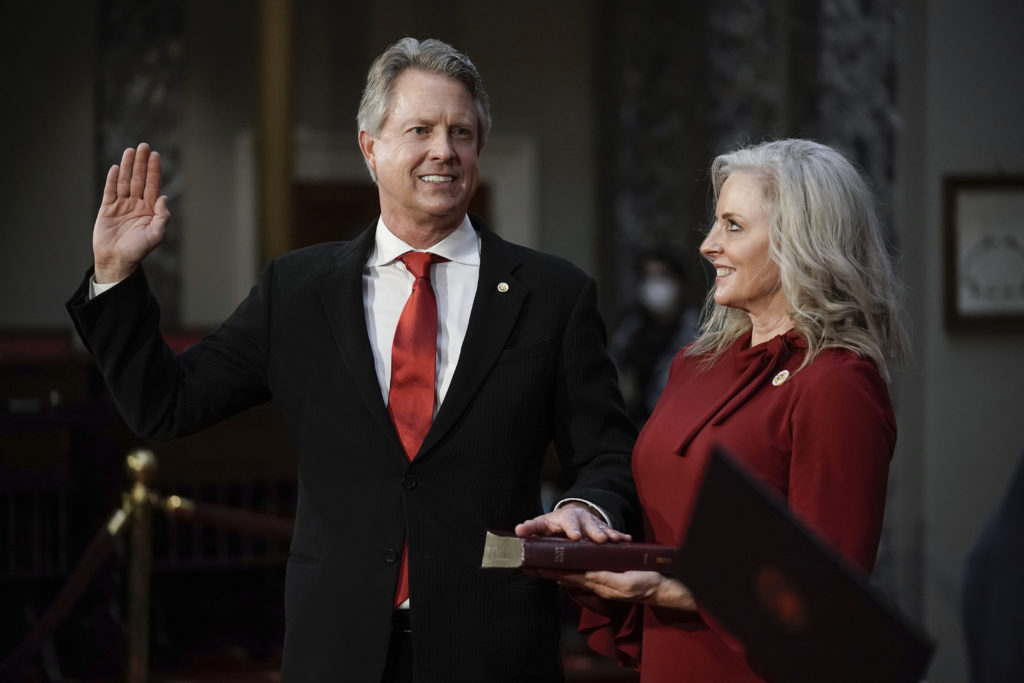
Other trade groups alluded to future consequences for donations to the Republicans who sought to reinstall Trump in the White House. Tech company Intel is a member of the Computer & Communications Industry Association (CCIA), and after Intel contributed $50,000 through its PAC to the election objectors in the 2020 cycle, the chip maker has moved to cut off the objectors indefinitely. While CCIA’s PAC has not recently made large campaign contributions, in response to Sludge’s inquiry about its giving policies going forward, CCIA President Matt Schruers said, “Our planning for 2021 is ongoing, but the CCIA PAC will not support policymakers whose actions have undermined confidence in the democratic process.”
Two telecom giants disclose they are members of the Wireless Infrastructure Association (WIA): AT&T, which cut off donations to the objectors indefinitely, and Verizon, which halted donations to the objectors through 2021. Previously, WIA had not issued any press releases or tweets on the Electoral College vote or the assault on the Capitol Building. In the 2020 cycle, WIA’s PAC contributed to objectors Rep. Jeff Duncan of South Carolina and David Rouzer of North Carolina. In response to Sludge’s inquiry, Matt Mandel, WIA vice president of government and public affairs and treasurer of the Wireless Infrastructure PAC, said, “We’re reviewing our giving.”
Big Trade Groups Decline to Give Timetable
In the previous election cycle, the American Bankers Association (ABA) was one of the largest groups donating to the objectors with over $1.3 million shelled out, according to a CRP tally.
Major banks Citigroup and JP Morgan Chase have paused all PAC giving, as has Goldman Sachs, and Bank of America says it will take the objections into account. On Jan. 11, the ABA put out a statement that it would be reviewing its political giving and taking into account the “troubling events.” An ABA spokesperson confirmed to Sludge that this means its PAC giving is paused until the review is complete. Last cycle, the ABA’s PAC contributed the $10,000 maximum to objector Sen. Marshall, with additional large donations to objectors such as Rep. Devin Nunes of California, Greg Murphy of North Carolina, and Lance Gooden of Texas.
The U.S. Chamber of Commerce spent $5.5 million in the previous cycle supporting Republican candidates, including $329,334 in independent expenditures supporting Marshall in his campaign. Chamber member Dow Chemical vowed not to donate to objectors through their current terms in office, and Intel, another corporate member of the “dark money” behemoth, cut off the 147 objectors indefinitely. The Chamber announced on Jan. 12 that its PAC donations would halt to “certain” lawmakers, but the Chamber did not respond to Sludge’s request for more details about the duration of the halt or the criteria for barred recipients.
Industry Groups Mum on Cutting Off Objectors
The Securities Industry and Financial Markets Association’s (SIFMA) members include Citi and Goldman Sachs, which have paused all PAC giving, and Bank of America, which says it will take the objections into account. The group issued a statement recognizing the Biden-Harris inauguration, but posted no press release or tweets about the election challenge. SIFMA’s PAC contributed in the 2020 cycle to objectors like Rep. McCarthy ($7,500), Rep. Ted Budd of North Carolina ($7,000), and Rep. Frank D. Lucas of Oklahoma ($6,500). SIFMA did not acknowledge a request for comment on its alignment with its members’ policies.
The Insured Retirement Institute (IRI) counts American Express as a member, and the group has not posted a statement on the election objections. Other financial services industry members of IRI had overhauled their donation policies as well, such as Charles Schwab, which is dissolving its PAC, and Morgan Stanley, which is cutting off the objectors. Last cycle, IRI’s PAC contributed to objector Rep. Mike Kelly of Pennsylvania. IRI did not acknowledge a request for comment on its future PAC giving.
The Financial Services Forum (FSF) posted a statement on Nov. 7 recognizing the presidential election results, though the group issued no online press releases or tweets about the election challenge or Capitol Building riots. FSF members include American Express and Morgan Stanley, and members Bank of America and JP Morgan Chase also took new stances. In the 2020 cycle, FSF’s PAC contributed to objector Rep. Blaine Luetkemeyer of Missouri. The group did not respond to an inquiry on its PAC plans for this current cycle and beyond.
Fossil Fuel Groups Vague on Pause Timeline
The American Fuel and Petrochemical Manufacturers (AFPM) issued a Jan. 7 statement on the Capitol riots and its president tweeted a call for an “orderly transition of power.” On Jan. 11, the trade association said it would pause all PAC giving. Dow Chemical discloses that it is an AFPM member. Last cycle, the AFPM PAC contributed to objectors including Sen. Cynthia Lummis of Wyoming, Sen. Tommy Tuberville of Alabama, and House members McCarthy and Scalise. An AFPM spokesperson confirms to Sludge, “AFPM is pausing all political contributions pending a review to ensure any support is reflective of AFPM’s values, principles, and mission.”
The American Chemistry Council (ACC) said the week after the riots that “the council’s PAC board would discuss the issue in a previously scheduled meeting next month,” but didn’t post any press releases or tweets regarding the Electoral College objections. ACC member Dow has cut off donations to the objectors during their current terms, while BP paused all PAC donations for six months, and Exxon Mobil is reportedly reviewing its PAC policies. In the 2020 cycle, ACC’s PAC contributed to objectors including Sen. Lummis and Sen. Marshall, as well as Rep. McCarthy, Rep. Sam Graves of Missouri, and Rep. Clay Higgins of Louisiana. To Sludge’s inquiry, ACC responded it was “certainly taking into account the reprehensible acts of January 6th, including public statements from a number of elected officials, as we evaluate future PAC contributions.”
The American Petroleum Institute (API) did not post on its website any press releases on the Electoral College challenge or any tweets from its organizational account around the Capitol Building riots, though API President and CEO Mike Sommers tweeted on Jan. 6 decrying the violence and posted a public note on LinkedIn. API member Dow has cut off donations to the 147 objectors for their terms, with BP pausing all donations for six months, and Exxon Mobil reviewing its policies. In the 2020 cycle, API’s PAC contributed to objectors Lummis, Marshall, Tuberville, as well as House objectors McCarthy, Rep. Richard Hudson of North Carolina, and Rep. Morgan Griffith of Virginia.
In response to Sludge’s inquiry, API spokesperson Bethany Aronhalt pointed to a Jan. 13 Reuters article reporting that API’s PAC giving would take the Capitol riot into account, without providing more specifics on any duration of a funding cutoff. Aronhalt also linked to Jan. 7 comments from Summers that Trump had “proven himself unworthy of the office of being president,” among other post-election statements.
Tech Associations Split on PAC Policies
Several technology industry trade associations posted statements condemning the Capitol Building riots, but did not move to endorse the PAC cutoffs adopted by their member companies. Two tech groups with significant lobbying spending are BSA – The Software Alliance and The Information Technology Industry Council (ITI), each of which have a number of members that changed their PAC donation policies, like BSA members Intel and Microsoft and ITI members Amazon, Cisco, Google, and Mastercard. In the 2020 cycle, BSA’s PAC contributed to four House objectors, while ITI’s PAC contributed to seven objectors, including Rep. Buddy Carter of Georgia.
The United States Telecom Association (USTelecom) posted a Jan. 11 statement that it would be pausing all PAC contributions, though it did not post any tweets about the Electoral College challenge or Capitol riots. USTelecom members have changed PAC giving policies: AT&T cut off objectors indefinitely, Cisco has cut them off for eternity, and Verizon through 2021. In the 2020 cycle, USTelecom’s PAC contributed to 10 House objectors, including Rep. Bill Johnson of Ohio.
Technology CEO group TechNet posted a strong statement on Jan. 14 that it would no longer donate to the election objectors, in perpetuity, with an accompanying tweet. In the 2020 cycle, objector Rep. McCarthy received $2,500 from its PAC.
Other prominent tech industry lobby groups did not post any public statements or tweets regarding the Capitol riots or the objections to the Electoral College vote certification. Telecom lobby the Cellular Telecommunications and Internet Association (CTIA) counts as members Intel, AT&T, and Verizon, according to each company’s disclosure report. In the 2020 cycle, CTIA’s PAC contributed to objector Sen. Rick Scott of Florida, as well as House objectors McCarthy, Scalise, and Johnson.
The Internet Association’s members include Amazon, which told The Wall Street Journal that it’s cutting off the objectors, and AirBNB, which said the same on its website. Members Facebook and Microsoft are pausing PAC donations this quarter, while Google is reviewing its policies. In the 2020 cycle, the Internet Association’s PAC contributed to just two candidates, both Democrats. The group did not respond to a question about future policies for PAC giving.
The Semiconductor Industry Association (SIA) posted a Jan. 6 statement on the Capitol riots with accompanying tweets. SIA member Intel is cutting off donations to the 147 objectors indefinitely, but the group did not respond regarding its PAC plans. SIA’s PAC has not contributed to any of the GOP election objectors in recent cycles.
The Association for Unmanned Vehicle Systems International (AUVSI) did not post any press releases on the challenges to the Electoral College vote. AT&T’s corporate responsibility report says it’s a AUVSI member. Last cycle, the AUVSI PAC contributed to election objector Rep. Garret Graves of Louisiana.
Many Groups Lag Behind Member Companies
Other top lobbying groups have yet to announce that they’ll be stopping PAC donations to objectors as their member companies have done. While the National Association of Manufacturers (NAM) responded quickly with a forceful statement on Jan. 7 on the Capitol Building “mobs,” the lobby group did not respond to Sludge’s question if they would be following members Dow and GE in changing giving policies for the five House objectors who received NAM-PAC contributions in the 2020 election cycle like Rep. Elise Stefanik of New York.
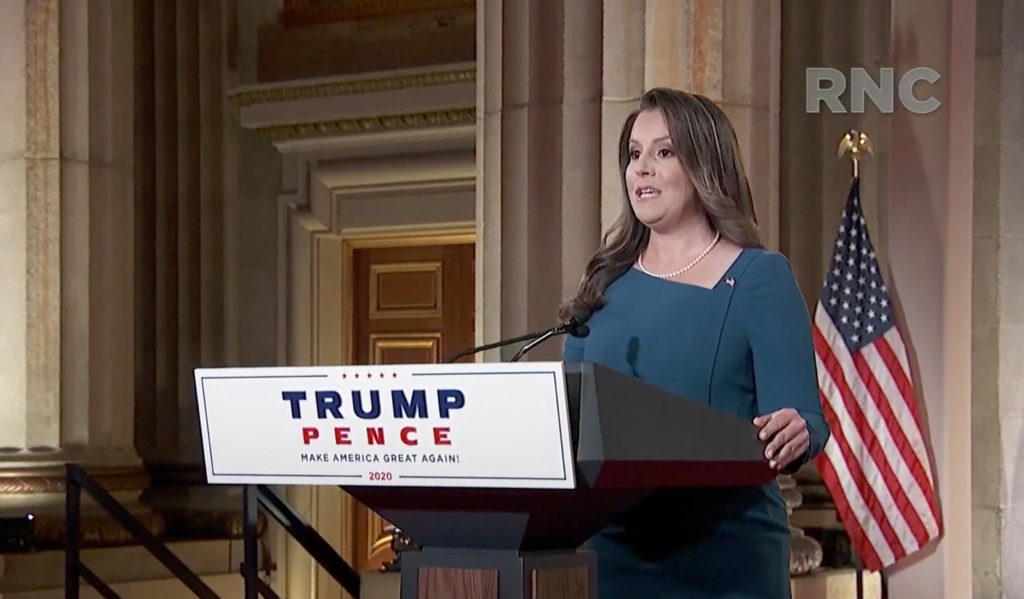
American Trucking Association (ATA) member Dow has cut off donations to the objectors for their term in office. ATA’s PAC contributed last cycle to objectors Sen. Lummis and Rep. Sam Graves, Rep. Mario Diaz-Balart of Florida, and Rep. Rick Crawford of Arkansas. The group did not acknowledge a request for comment on its compliance with Dow’s policy.
The Retail Industry Leaders Association (RILA) posted a statement on Jan. 6 and an accompanying tweet about the Capitol riots. RILA member companies Nike and Walmart say they’re cutting off donations to the 147 election objectors, the latter indefinitely. T-Mobile says it will take recent events into account. Intel’s corporate responsibility report from its website says it’s a RILA member. Other RILA members CVS, Home Depot, Lowe’s, and Target told the Popular Information newsletter that they’re actively reviewing their donation policies. In the 2020 cycle, RILA’s PAC contributed to objectors including Stefanik and Rep. Tim Walberg of Michigan. RILA did not acknowledge a request for comment about its PAC’s giving policies this election cycle.
The Business Roundtable (BRT) is a top lobbying group composed of CEO’s of huge companies like Tim Cook of Apple, Jeff Bezos of Amazon, Lawrence Fink of hedge fund BlackRock, and Stephen Schwarzman of private equity giant Blackstone. The group posted a statement on Jan. 6 in opposition to the Capitol violence and further condemned Trump’s attempt to overturn the election in a statement on Jan. 13.
Many BRT member companies, including American Express, Morgan Stanley, Comcast, Mastercard, Dell, Amazon, and Intel, have said they’re cutting off PAC donations to the 147 objectors, many of them indefinitely. While the group does not have a PAC, in the 2020 cycle, BRT’s vice president of government affairs, Matt Miller, contributed to objectors Rep. Steve Scalise ($2,500) and House Minority Leader Kevin McCarthy ($1,000). Business Roundtable vice president Corey Astill donated $500 to objector Rep. Chris Stewart of Utah. The Business Roundtable has not issued public guidelines regarding its executives’ political donations going forward.
The Advanced Medical Technology Association (AdvaMed) posted a Jan. 6 statement on Capitol violence, with an accompanying tweet from its President Scott Whitaker. General Electric’s social responsibility report says it’s an AdvaMed member, and the company is halting PAC donations to the objectors through the 2022 cycle. Another AdvaMed member, pharmaceutical company Amgen, is pausing all PAC donations. In the 2020 cycle, the AdvaMed PAC contributed to election objectors including Sen. Marshall, as well as McCarthy and Rep. Jodey Arrington of Texas.
Comcast discloses it is a member of the Motion Picture Association of America (MPAA). In the 2020 cycle, the MPAA PAC contributed to election objectors Rep. Tom Rice of South Carolina and Rep. Jason Smith of Missouri. On Jan. 12, MPAA Executive Vice President of U.S. Government Affairs Patrick Kilcur issued a statement that the group was “shocked and saddened by the horrific events” and would cut off donations to election objectors for the “foreseeable future,” though this pledge was not posted on the MPAA website.
The Equipment Leasing and Finance Association (ELFA) did not post any press releases about the Electoral College objections. ELFA member Cisco says it is cutting off PAC donations to the objectors in perpetuity. In the 2020 cycle, ELFA’s PAC contributed to three objector House members including Rep. Adrian Smith of Nebraska.
The Aerospace Industries Association (AIA) posted a Jan. 7 statement condemning the Capitol violence, though that statement was not tweeted out. General Electric, whose aviation division is an AIA member, says it’s pausing donations to the 147 Republican election objectors through the 2022 election. AIA’s PAC contributed to objector Rep. Steve Palazzo of Mississippi last cycle.
